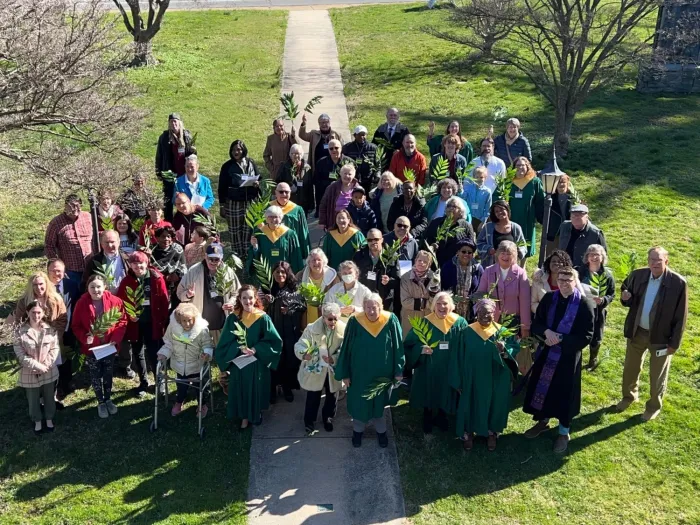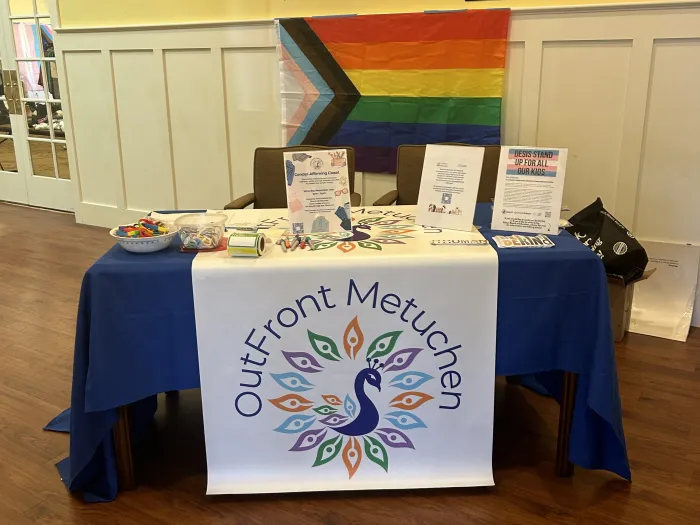‘Solidarity Hour’ offers blueprint for opposing mining project on Native American sacred land
Sunnyvale Presbyterian Church offers support to Amah Mutsun Tribal Band


LOUISVILLE — A series of conversations on how to take meaningful action to undo the harms of the Doctrine of Discovery continued this week with a spotlight on opposition to a proposed open-pit mine on what some Native Americans see as sacred land in Santa Clara County, California.
The online discussion, coordinated by the Presbyterian Hunger Program’s Global Solidarity Collective (formerly Network), centered on the Amah Mutsun Tribal Band’s resistance to a project that would impact Juristac, also known as Sargent Ranch, and how Sunnyvale Presbyterian Church has added its voice to the opposition.
The discussion was part of a Solidarity Hour that sprang from a 2023 book study of “The Land is Not Empty” by Sarah Augustine that examined the Church’s complicity in colonization and the exploitation of Indigenous lands, resources and peoples.
“We've been wrestling with the Doctrine of Discovery for a while now, and in light of the General Assembly's decisions in 2016 and 2018 to repudiate the Doctrine of Discovery, we kind of wrestled with what does it mean to repudiate?” said the Rev. Jed Koball, a mission co-worker in Peru who served as a facilitator of this week’s discussion. “There has to be relationship and action alongside of it.”
The mining project proposed for Juristac provides some examples of how a church can get involved.
“It's a blueprint for churches — ordinary churches — to look around and say, ‘What does love my neighbor mean?’ and I really appreciate that,” said Cindy Corell, a mission co-worker serving in the Caribbean who attended the Solidarity Hour.

Sargent Ranch Partners, LLC, has requested to develop a sand-and-gravel surface mining operation four miles south of the city of Gilroy, California, that would happen in phases over the course of three decades, according to an online description. The operation would take place on nearly 300 acres within the property, with materials being hauled away by truck and train for various construction projects, and an additional 105 acres would act as a buffer zone.
During the Solidarity Hour, Ruling Elder Barry Vickrey of Sunnyvale Presbyterian Church provided background on the project, and organizers showed a video featuring Valentin Lopez, chairman of the Amah Mutsun Tribal Band, who explained why Juristac is so important to his people.
“Our creation story tells us Creator specifically picked our people to care for the land(s) of our territory, which Creator defined for us,” Lopez said. “What was most important is that we maintain the land as sacred. Juristac is the most sacred site of our tribal territory.”
One of the ways that Sunnyvale Presbyterian has helped to be an ally is by communicating with local officials to show their displeasure with the proposed project.
“On February 15th of 2022, our session voted to support the Amah Mutsun in their efforts,” which included writing a letter from the session to the Santa Clara County Board of Supervisors and the county planning commission, saying the mining project would desecrate the site, both spiritually and ecologically,” Vickrey said.
The letter also emphasized that “we're a faith family at Sunnyvale Presbyterian and that our support for the Amah Mutsun was based upon our respect for their sacred land,” Vickrey said. It also noted the tribal band’s “care of the land and preservation of it” and the church’s support for “the spirituality of the Amah Mutsun.”
Later, Vickrey spoke at a meeting of the Sunnyvale City Council, which was considering a resolution to support the Amah Mutsun. The council also heard from the tribal chair, who was “incredibly eloquent on the sacred nature of the land and on their land management,” Vickrey said.
Many environmental and political groups spoke out as well, and the council opted to oppose the project, he said.
Now, the project is basically on hold while the mining proposal is being studied, Vickrey said.
Preliminary findings indicate the project would have significant impact “with regard to changes in the significance of tribal cultural resources within the proposed area of development, and the Juristac Tribal Cultural Landscape,” according to a draft Environmental Impact Report prepared by Santa Clara County.
There also would be negative effects on aesthetics (the views), air quality, biological resources (the movement of animals), traffic, and paleontological resources, the draft report noted.
Along with comparing and contrasting that project with Oak Flat, another project that book study participants have discussed, the group heard a report from Koball about actions by the recently concluded 226th General Assembly. He highlighted a reversal on total divestment from fossil fuel, a move that will allow continued corporate engagement by the Presbyterian Church (U.S.A.)’s Committee on Mission Responsibility Through Investment (MRTI).
In other environmental business, the General Assembly affirmed the importance of taking steps to help protect Indigenous people from the negative sides of lithium mining. Read about that action and free, prior and informed consent here.
The Solidarity Hour takes place on the second Tuesday of every month from noon-1 p.m. (Eastern). Register here. A recording of this week’s discussion is ">available here.
You may freely reuse and distribute this article in its entirety for non-commercial purposes in any medium. Please include author attribution, photography credits, and a link to the original article. This work is licensed under a Creative Commons Attribution-NonCommercial-NoDeratives 4.0 International License.




